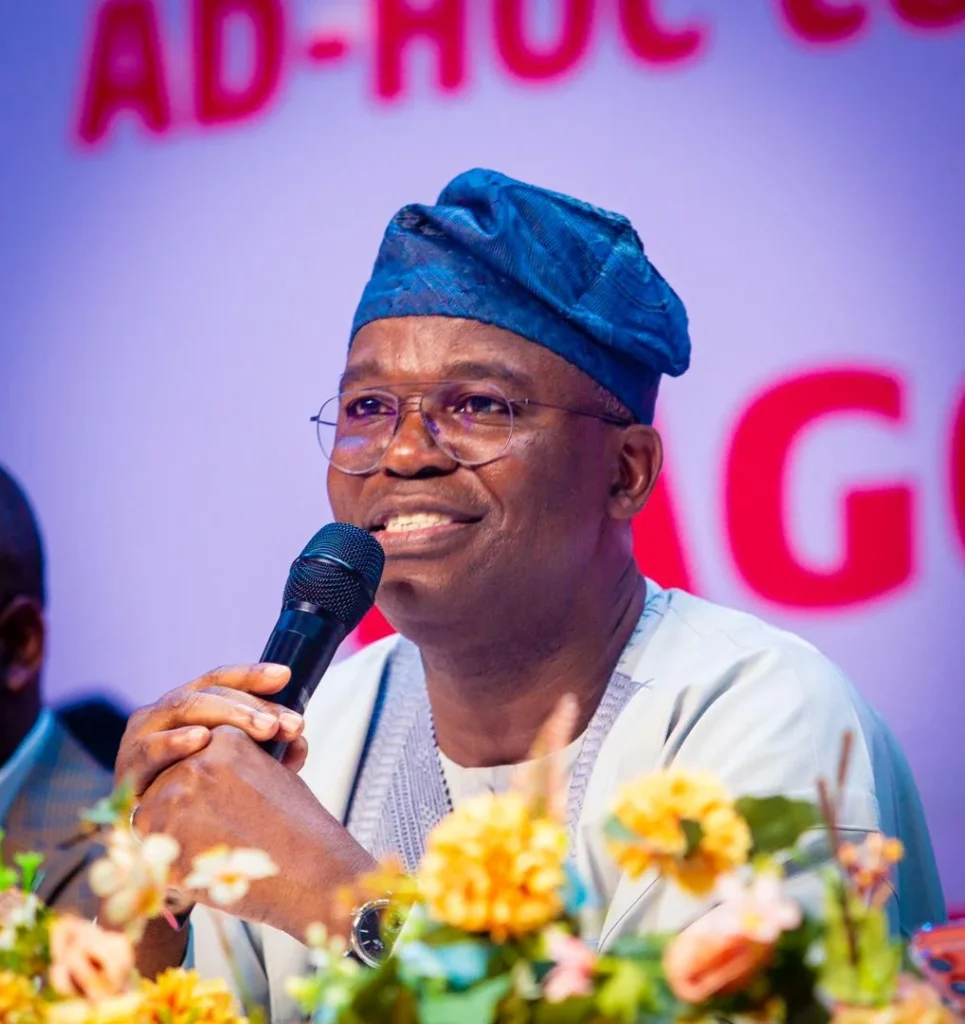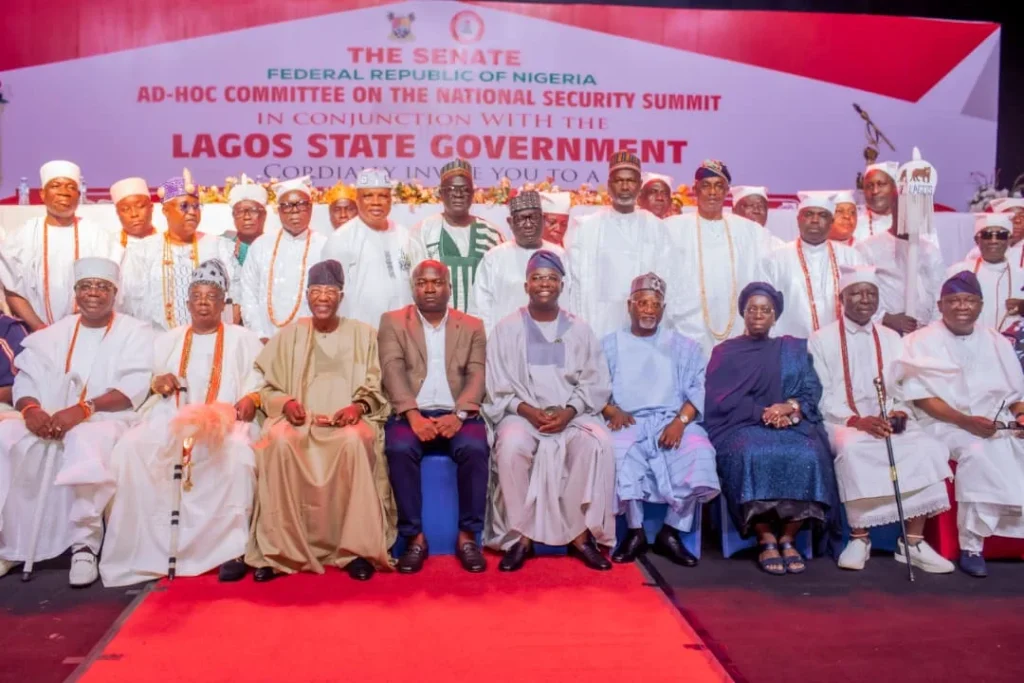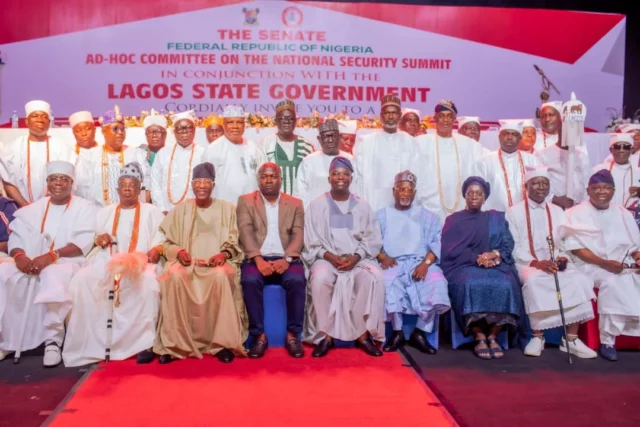At a high-stakes South‑West Zonal Security Summit convened in Ikeja, Lagos, the Nigerian Senate, alongside regional governors and key stakeholders, made a compelling case: to stem the rising tide of insecurity in the South‑West, only a united front — rooted in indigenous solutions, technological innovation, and state policing — can turn the tide.
Table of Contents

A Call for Homegrown, High-Tech Solutions
Senator Adetokunbo Abiru, representing Lagos East and chairing the Senate’s South‑West geopolitical interactive hearings, sounded the alarm on growing threats — from banditry to highway violence. “While the South‑West might not yet bear the full weight of terrorism, the uptick in kidnapping, clashes, and violent crime is deeply concerning,” he said.
Abiru urged every Nigerian to play a role. He reminded citizens that protecting the region is not just about security agencies — it’s a collective responsibility. He emphasised that when communities report suspicious behaviour, they defend not only their families but the future of the South‑West.
Importantly, he warned that without decisive action, the South‑West risks becoming “a sanctuary for criminality or a battleground for those who seek to destabilise our nation.”
Regional Architecture: From Amotekun to State Policing
Governor Babajide Sanwo‑Olu, speaking through Dr Ayodele Ogunsan of the Lagos State Security Trust Fund, reiterated his administration’s commitment to bolstering the region’s security architecture.
One of the summit’s central proposals was to build a stronger, tech-enabled Amotekun force — transforming it into a unified command capable of cross-state intelligence sharing and coordinated operations. This would involve not just boots on the ground, but drones, surveillance, and data systems.
Sanwo‑Olu also underscored the importance of traditional institutions — Obas and community leaders — to the security strategy. He argued that these local actors are indispensable because they “know the heartbeat of our communities.”
In a resonant message, he linked security to economic survival: insecurity disrupts markets, farmlands and transport, dragging down livelihoods and growth. “A region that cannot promise safety cannot promise prosperity,” he said.

Community, Technology and Policing: The Pillars of the Solution
Several senators and traditional rulers echoed the need for a multi-layered approach: not just military might, but civilian engagement, cutting‑edge technology, and community policing.
- Senator Ibrahim Jimoh (Ondo South) argued that countering terrorism and insurgency will require “non-conventional approaches,” combining military efforts with civilian-led initiatives.
- Senator Gbenga Daniel (Ogun East) stressed collaboration among all stakeholders — government, security, civil society — to build a resilient security network.
From the traditional leaders’ camp, Oba Olufolarin Ogunsanwo, Alara of Ilara in Epe, called for community policing underpinned by modern technology, broader police recruitment, better funding, and a joint task force that cuts across different security agencies.
Moreover, Iba Gani Adams, the Aare Onakakanfo of Yorubaland, reiterated his long-standing support for state policing, positioning it as a “key solution to tackling insecurity nationwide.”
Civil society actors, youth groups, women’s organisations, and religious leaders also weighed in. They called for fairer pay, improved welfare, and better equipment for security operatives — arguing that motivated officers are critical to an effective security posture.
Why This Summit Matters: A Turning Point in Regional Security
This summit is more than just talk. It’s part of a broader Senate-led strategy that seeks to rethink how Nigeria approaches security — not just through force, but through structure, innovation, and local ownership.
- The Senate’s regional security summits are directly tied to its wider National Security Summit initiative, which brings together voices from every geopolitical zone.
- By centring indigenous solutions, the Senate is pushing back against one-size-fits-all safety models. The South‑West’s unique social fabric and local expertise must be part of its defence.
- The call for state policing is bold and politically loaded, but many see it as necessary. The traditional security architecture in Nigeria has struggled to keep pace with evolving threats.
- Technology underlies almost every recommendation. Whether through surveillance, intelligence sharing, or predictive analytics — the region is being urged to adopt 21st-century tools to respond to 21st-century risks.
Challenges Ahead: Can the Vision Match Reality?
Despite the strong consensus, obstacles are many. Funding will be a key issue: equipping a tech-driven Amotekun or a state police force costs money — and sustaining it demands political will. Local capacity is another hurdle, as grassroots technology infrastructure in many South‑West communities remains uneven.
Community trust must also be rebuilt. Calls for vigilance and reporting are only meaningful if people believe in — and trust — their institutions. As Senator Abiru noted, framing the media narrative is critical: “We must promote narratives that strengthen unity … avoid framing our national challenges along ethnic or religious lines.”
Then there is the legal question. State policing raises constitutional concerns. Its rollout would require careful calibration between state and federal authorities, a challenge that has derailed similar efforts in the past.
And while technology offers immense promise, deployment risks — data privacy, misuse, or underutilisation — are real. Without proper oversight, sophisticated tools could deepen mistrust.

Conclusion
Friday’s summit in Ikeja was more than just a gathering of powerful voices — it was a clarion call. The Senate, regional governors, traditional rulers, civil society, and security agencies all spoke in unison: to reclaim the South‑West from the grip of insecurity, Nigeria must invest in local structures, adopt modern technology, and empower its communities.
This is not just about protecting lives — it’s about safeguarding the future. Economic growth, social cohesion, and the well-being of millions depend on it. And in a rapidly changing security environment, the South‑West appears ready to lead by example.
But execution will be everything. The ambitious agenda laid out in Ikeja must now translate into resources, reforms, and resilience. If done right, this summit could mark a turning point — not just for the South‑West, but for Nigeria’s broader security trajectory.
Join Our Social Media Channels:
WhatsApp: NaijaEyes
Facebook: NaijaEyes
Twitter: NaijaEyes
Instagram: NaijaEyes
TikTok: NaijaEyes





